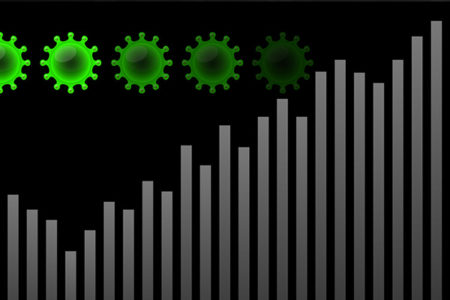Woodstock Quarterly Newsletter Update

To our Clients:
First and foremost, we at Woodstock hope you and your family are healthy and safe at home. The Covid-19 pandemic has brought new challenges to many of us. In these uncertain times, our thoughts and sympathies go out to all of those whose lives have been impacted. We are particularly grateful for all the brave men and women who are working on the front lines facing the disease directly.
How we are operating
Much of the work at Woodstock can be done remotely and, generally, we are set up physically to do that. Many of our employees are working from home, most of the time. Under Massachusetts declarations, being in financial services, many of us qualify as “essential”, so some of us are in the office regularly and some only intermittently, and some not at all. We pick up the mail as well as respond by email and telephone.
Generally, we are healthy and well. Some of us care for or are in contact with, those who have underlying conditions or have them ourselves, so we are being cautious and very mindful of safety.
What concerns us as investors?
The chance of a slow recovery in economic activity.
The initial wave of Covid-19 infections may be fairly short-lived and the financial markets may rebound relatively quickly but the recovery of economic activity may be slower. Clients should watch and monitor their cash positions, but know that Woodstock’s basic strategy is sound. The recent federal legislation supports money market fund liquidity, which is the cash portion of a portfolio.
What’s proving to be good about our model?
1. You own the assets in your account and are not merely the creditor of the real owner.
2. Clients are mostly invested in high quality U.S. stocks which, we believe, will prove they have the ability to rebound, again
William H. Darling, Chairman & CEO
Adrian G. Davies, President
A tactical opportunity to be discussed with your portfolio manager.
The global health crisis that started in China and is sweeping across the globe has punished the US equity market by 35% in 33 days. Fear, uncertainty has triggered calls for liquidity which motivates selling even as prices decline. An old stock market saw is “there is no such thing as an intellectual bottom”. By definition, stock market panics are highly emotional experiences. This one is no different.
Despite all the uncertainty as to when infected cases peak and begin declining we know that there’s a finite limit to its duration. It’s likely between four and sixteen weeks with a center point estimate of eight-to-ten weeks. The health care infrastructure is being stress tested with all the professionals involved. Quarantines are restrictive and long periods of confinement get old quickly.
But from an investor standpoint we have to wade through the uncertainty. The stock market is a discounting mechanism with variable leads and lags. It normally will discount events six-months or more ahead of time and in our experience can discount (i.e. beat into the ground) negatives well after they’ve occurred.
But in the present instance where the coronavirus is the dominant negative the market is vigilant for any information or indication that this finite negative development is about to expire. Peaking infected case statistics in the US are likely within the next two-four weeks. Thus, the stock market is close to a major reversal and the opportunity will pass quickly from the scene.
As the adage goes, “they don’t ring a bell at the bottom” but monitoring the volatility in the market can inform one as to when risk is receding. Since the coronavirus has a finite end date the days of extreme volatility readings are numbered and with it the buying opportunity. Investors should be examining their asset mixes and where cash positions permit, evaluating which existing holdings or new ideas to add to their equity portfolios before the “all clear” signals are announced by government leaders and health officials. The finite time dimension of the virus (weeks) and the unprecedented fiscal/monetary stimulus to come over the next year that will drive the next upcycle will be the rallying cry of bullish investors coming out of this brutal decline. The starter’s pistol goes off in weeks not months.
Thomas C. Stakem, Jr., Director of Research
